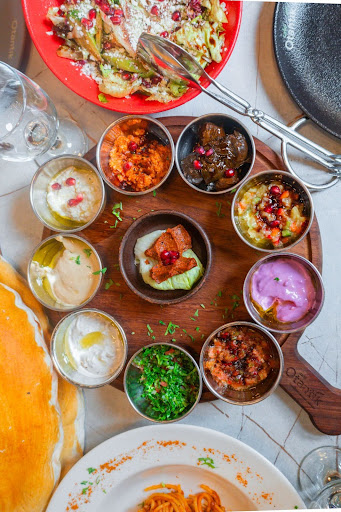Do you start your day with a warm cup in hand but still wonder, which has more caffeine, tea or coffee?
The answer might surprise you.
For millions of people around the world, tea or coffee is the go-to drink in the morning. Some choose coffee for a strong wake-up boost, while others prefer the calming comfort of tea. But the debate is ongoing when it comes to caffeine, the ingredient that keeps you alert.
In this article, we’ll settle the question: Which has more caffeine, tea or coffee? We’ll also explore how caffeine affects the body and help you decide which drink suits you better.
Coffee or Tea: Which One Gives You a Bigger Boost?
Let’s get straight to the point.
Coffee generally has more caffeine than tea. On average, an 8-ounce cup of brewed coffee has around 95 mg of caffeine, while black tea contains about 40–50 mg in the same size serving.
So, if you’re asking what has more caffeine, tea or coffee? The simple answer is: coffee.
But that doesn’t mean tea has no caffeine. Some types of tea, especially black and green tea, still provide a noticeable energy boost. The difference is that caffeine from tea is usually absorbed more slowly by your body, giving you a steady sense of alertness instead of a fast jolt. Also, try to have caffeine with the best lunch in Dubai, so you remain fresh and still feel sleepy by night.
A Quick Look at Caffeine Levels
| Beverage Type | Average Caffeine (per 8 oz) |
| Brewed Coffee | 90–100 mg |
| Espresso (1 oz shot) | 63 mg |
| Black Tea | 40–50 mg |
| Green Tea | 25–35 mg |
| White Tea | 15–30 mg |
| Herbal Tea (like chamomile or mint) | 0 mg |
Why the Difference in Caffeine?
Caffeine levels depend on many things, such as the type of plant used, how the drink is prepared (brewed, steeped, boiled), and how long it’s steeped or roasted.
Coffee beans naturally contain more caffeine than tea leaves. But tea is often steeped for a shorter time, while coffee is brewed more strongly. That’s why, even though both come from plants, their caffeine levels are very different.
Does Tea or Coffee Have More Caffeine in Certain Situations?
Yes. There are cases when tea can have almost as much caffeine as coffee.
For example, matcha tea (made from powdered green tea) can have up to 70 mg of caffeine per cup, and strongly steeped black tea can reach over 60 mg, especially if brewed longer than 5 minutes.
Still, even in these stronger teas, coffee usually remains higher in caffeine overall.

Tea or Coffee: Which is Better for You?
Now that you know which has more caffeine, coffee or tea, you might ask: tea or coffee, which is better?
It depends on your goals, lifestyle, and health needs.
Choose coffee if you need a quick energy boost in the morning, you like strong flavor and aroma, and you want more caffeine in one cup.
Choose tea if you prefer a milder, slower energy release, you want extra health benefits like antioxidants (especially from green tea), and you’re sensitive to caffeine or want to avoid jitters.
You must try Turkish tea — a rich, aromatic brew traditionally served in tulip-shaped glasses, offering both flavor and culture in every sip.
So, in the end, coffee or tea, which is better, really comes down to what your body and routine prefer.
Surprising Facts About Caffeine
1. Your body gets used to caffeine. Daily coffee drinkers may feel they need more to feel the same effect over time.
2. Tea contains L-theanine. This is a natural compound that helps calm your mind. That’s why tea gives you focus without making you feel anxious.
3. Decaf doesn’t mean caffeine-free. Both decaf coffee and tea still have small amounts of caffeine, just much less than regular versions.
4. Coffee can improve focus, but too much may cause crashes. A moderate amount (1–2 cups a day) is usually best. More than that might lead to restlessness or poor sleep.
5. Tea offers many types and benefits. From black to green to herbal, each tea type has unique health properties beyond caffeine.
Caffeine Tips for Daily Drinkers
First of all, you should drink water with your coffee or tea to stay hydrated and avoid caffeine after 3 p.m. if you have trouble sleeping. Also, switch to herbal tea at night if you want something warm without caffeine and try both tea and coffee on different days to see how your body responds.
Conclusion
So, which has more caffeine, tea or coffee? The answer is clear: coffee wins in caffeine content. But both drinks have their own benefits and can be part of a healthy lifestyle. If you’re someone who needs a quick energy kick in the morning, coffee may be your best bet. If you prefer calm focus and health benefits throughout the day, tea could be your drink of choice. And if you’re looking for the perfect place to enjoy the best coffee in Dubai, Otantik is the spot for you. We serve rich Turkish coffee, soothing teas, and a full menu of authentic dishes made with love and tradition. Whether you’re grabbing a mid-day coffee, enjoying a relaxed lunch, or unwinding over dinner, Otantik brings flavor and comfort together. So, call at 056 9952899 for the best sips!
Frequently Asked Questions
Can nicotine from shisha be detected in a drug test?
Yes, nicotine can show up in drug tests, especially in tests that check for cotinine, which is a by-product of nicotine. If you’re a regular shisha smoker, you might test positive.
How long does nicotine from shisha stay in your system?
Nicotine can stay in your body for up to three days, but cotinine (a substance your body makes after breaking down nicotine) can last for up to ten days, depending on how often you smoke.
Can you get addicted to shisha faster than cigarettes?
It depends on how often and how long you smoke. Long shisha sessions can deliver more nicotine at once, which may lead to addiction faster than smoking a single cigarette.
Does mixing shisha flavors change the nicotine level?
No, mixing flavors doesn’t reduce or increase nicotine levels. The nicotine content depends on the tobacco base, not the flavor. If you’re using tobacco-based shisha, the nicotine stays the same.
Is secondhand smoke from shisha harmful?
Yes. Just like cigarette smoke, secondhand smoke from shisha contains nicotine, carbon monoxide, and other harmful chemicals. It can affect non-smokers nearby, especially children and pregnant women.







